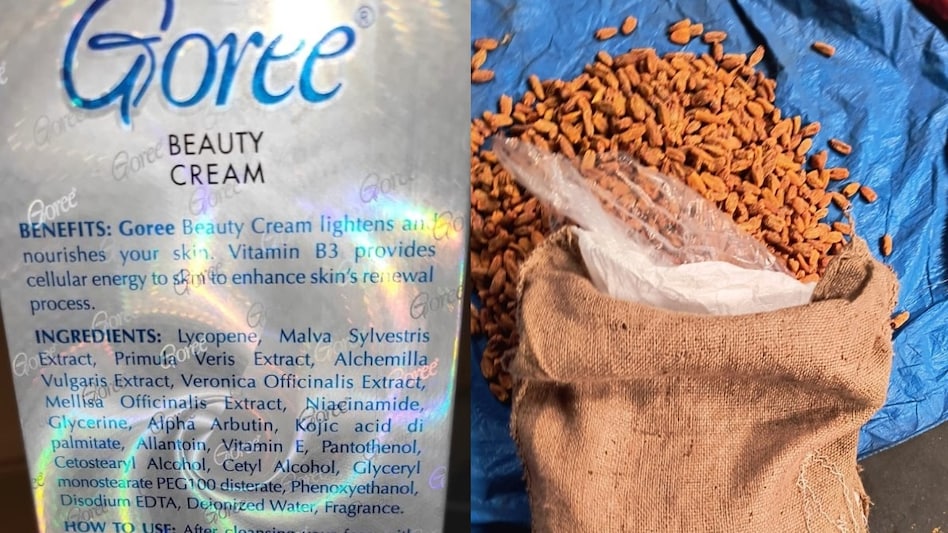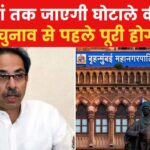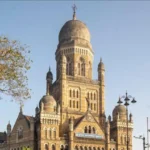The Directorate of Revenue Intelligence (DRI) has carried out another major operation to prevent the illegal entry of goods arriving from Pakistan at the Mumbai port. Under ‘Operation Deep Manifest’, DRI Mumbai has seized 28 containers at Nhava Sheva Port. These containers were filled with cosmetics and dried dates of Pakistani origin, with a total weight of approximately 800 metric tons and an estimated value of around 12 crore rupees.
Following the Pahalgam terrorist attack on May 2, 2025, the government imposed a complete ban on all imports arriving directly or indirectly from Pakistan. Since then, DRI has launched ‘Operation Deep Manifest’ to enforce this ban and intercept goods entering illegally.
Manipulation of Goods Through Fake Documents
The investigation revealed that goods originating from Pakistan were shipped to India via Dubai’s Jebel Ali Port. The documents falsely declared these goods as originating from the United Arab Emirates (UAE), while in reality, they originated from Pakistan. This entire scheme was being operated through a complex network involving citizens of India, Pakistan, and the UAE.
In the case of dried dates, a Dubai-based Indian supplier arranged transit for goods from Pakistan and issued fake invoices. The investigating agency has arrested this supplier. He operated on a commission basis and used his firms to conceal the true links in financial transactions and the supply chain.
In the cosmetics case, DRI has arrested a customs broker who attempted to facilitate the entry of goods from Pakistan into India by falsely declaring them as originating from the UAE.
A Major Operation Had Been Conducted Before
In July 2025, under the same operation, DRI had seized 39 containers containing 1,115 metric tons of goods, valued at approximately 9 crore rupees. In that case, a major importer was arrested. Despite this, some businesses are attempting to circumvent government restrictions by manipulating documents and country-of-origin information to import goods from Pakistan.
Threat to National Security
The investigating agency states that such imports not only cause economic harm but could also have links to Pakistan-based networks in Dubai and associated terrorist-supporting organizations. This is why it is considered a serious threat to national security.
DRI’s Strict Measures
DRI stated that ‘Operation Deep Manifest’ is entirely based on strategic intelligence, targeted raids, and coordination among various agencies. The agency’s objective is to ensure that no goods of Pakistani origin enter India. This is a significant step not only toward securing India’s economic security but also its national security.
DRI has made it clear that strict legal action will be taken against importers and collaborators involved in such cases, and no one will be allowed to disregard government restrictions.
Mumbai port
The Mumbai Port is one of India’s oldest and largest maritime facilities, officially established in 1873 during British colonial rule. It played a pivotal role in India’s trade and economy, serving as a major gateway for commerce and migration. Today, it remains a crucial hub for cargo and continues to be a significant part of Mumbai’s historical and economic landscape.
Nhava Sheva Port
Nhava Sheva Port, officially known as Jawaharlal Nehru Port, is India’s largest container port and a crucial hub for international trade. It was commissioned in 1989 to decongest the nearby Mumbai Port and is named after India’s first prime minister. Strategically located on the eastern shore of Mumbai Harbour, it handles the majority of the country’s containerized cargo.
Pakistan
Pakistan is a modern nation-state established in 1947 following the partition of British India, making it one of the world’s youngest countries. Its territory, however, is home to some of the planet’s most ancient civilizations, including the major cities of the Bronze Age Indus Valley Civilization, such as Mohenjo-Daro and Harappa. The region’s rich history encompasses influences from various empires, including Persian, Greek, Islamic, Mughal, and British.
Dubai’s Jebel Ali Port
Jebel Ali Port is the largest man-made harbor and the biggest port in the Middle East, constructed in the late 1970s by the Dubai government. Its creation was a pivotal part of Dubai’s economic diversification strategy, transforming the emirate into a major global logistics and trading hub. Today, it is a central component of the DP World network and a cornerstone of the region’s supply chain.
United Arab Emirates (UAE)
The United Arab Emirates (UAE) is a federation of seven emirates on the Arabian Peninsula, formed in 1971 following independence from Britain. Historically a region of pearl diving and trade, it has rapidly transformed into a global hub of commerce, tourism, and innovation, renowned for its modern cities like Dubai and Abu Dhabi. Its culture is a unique blend of deep Islamic traditions and a highly cosmopolitan, futuristic outlook.
India
India is a South Asian nation with one of the world’s oldest civilizations, dating back over 5,000 years to the Indus Valley Civilization. It is the birthplace of four major religions—Hinduism, Buddhism, Jainism, and Sikhism—and has a rich history marked by ancient empires, the Mughal era, and British colonial rule. Today, it is the world’s largest democracy and a vibrant, diverse cultural landscape known for its myriad languages, cuisines, and traditions.
Pahalgam
Pahalgam is a scenic hill station in the Indian-administered union territory of Jammu and Kashmir, renowned for its lush meadows and the Lidder River. Historically, it was a humble shepherd’s village before developing into a popular tourist destination and a base camp for the annual Amarnath Yatra pilgrimage. Its name, translating to «Village of Shepherds» in Kashmiri, reflects its pastoral origins.
Dubai
Dubai is a modern global city and emirate in the United Arab Emirates, historically known as a small fishing and pearling village. Its rapid transformation began after the discovery of oil in the 1960s, but it has since strategically diversified its economy into tourism, real estate, and finance. It is now renowned for its ultramodern architecture, luxury shopping, and ambitious landmarks like the Burj Khalifa and Palm Jumeirah.




